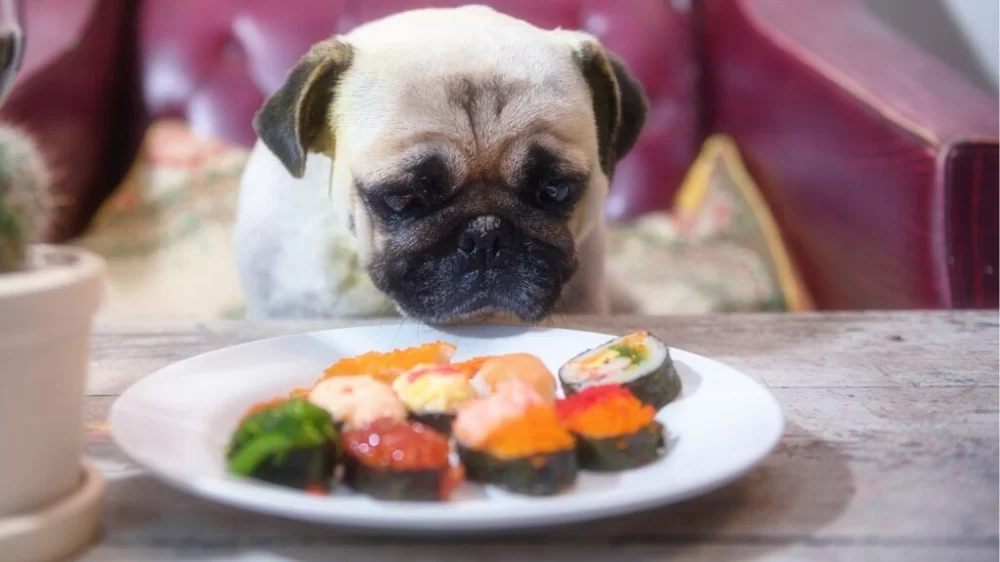- understanding-dog-weight-issues
- why-homemade-foods-for-weight-gain
- key-ingredients-for-weight-gain
- easy-homemade-recipes-for-weight-gain
- real-life-case-studies
- consulting-with-professionals
1. Understanding Dog Weight Issues
Maintaining a healthy weight is critical for your dog’s overall health. However, some dogs struggle to gain weight, whether due to medical conditions, high activity levels, or inadequate diet. If you’ve noticed that your dog is underweight or not gaining the weight they need, it could be time to switch up their diet.
Being underweight can lead to a weakened immune system, lower energy levels, and can even affect your dog’s overall mood and behavior. It’s essential to address weight gain in dogs as soon as possible, and one of the most effective ways is through proper, calorie-dense, homemade dog food. But what exactly is the best way to ensure that your dog is gaining weight in a healthy and sustainable way?
2. Why Homemade Foods for Weight Gain?
Many dog owners struggle to find a commercial dog food that’s both high in quality and effective for weight gain. That’s where homemade dog food comes in. When you make your own dog food at home, you have full control over the ingredients, ensuring that your dog is getting the nutrients they need to pack on healthy weight.
Homemade dog food is not only more natural and free from preservatives, but it can also be tailored specifically to your dog’s dietary needs. Whether they need more protein, healthy fats, or calorie-dense foods, you can create meals that are packed with the right nutrients to help them gain weight safely.
Moreover, homemade meals are a great way to avoid allergens or fillers that may be present in commercial dog food. If your dog has food sensitivities or doesn’t respond well to certain commercial ingredients, a homemade diet is an ideal solution for managing their weight and health.
3. Key Ingredients for Weight Gain
3.1 Protein-Rich Foods
Protein is essential for muscle building and weight gain. For dogs that need to gain weight, a diet rich in high-quality protein will help them build muscle mass. Lean meats like chicken, turkey, and beef are excellent protein sources. Fish, such as salmon, is also beneficial as it provides not only protein but healthy omega-3 fatty acids, which support a healthy coat and skin.
3.2 Healthy Fats
Fat is a vital source of energy, and dogs that are underweight need to consume more healthy fats. You can add fats to their diet through foods like salmon oil, coconut oil, and peanut butter (make sure it's unsweetened and free from xylitol). These fats provide a calorie-dense source of energy that will help your dog gain weight in a healthy manner.
3.3 Carbohydrates and Fiber
Carbohydrates provide energy and support digestion, and when paired with fiber, they can help regulate your dog’s digestive system. Good sources of carbohydrates include sweet potatoes, brown rice, and oats. These ingredients can add bulk to meals and provide your dog with steady energy to sustain them throughout the day.
3.4 Vegetables and Fruits
While not calorie-dense, vegetables and fruits can add essential vitamins and minerals to your dog’s diet. Carrots, spinach, and peas are excellent vegetables to include, while fruits like apples, blueberries, and bananas are packed with antioxidants that support overall health. These ingredients are also a good source of hydration.
4. Easy Homemade Recipes for Weight Gain
4.1 High-Calorie Chicken and Sweet Potato Recipe
This recipe is perfect for dogs that need a boost in both protein and healthy carbs. It combines chicken breast, sweet potatoes, and a bit of olive oil for an extra dose of healthy fat.
Ingredients: - 1 lb. chicken breast, cooked and shredded - 1 large sweet potato, mashed - 1 tablespoon olive oil - 1/2 cup peas, cooked - 1/4 cup carrots, chopped
Directions: 1. Cook the chicken and shred it into small pieces. 2. Boil or bake the sweet potato until soft and mash it. 3. Mix the chicken, sweet potato, peas, and carrots together. 4. Drizzle the olive oil over the mixture for added fat. 5. Serve in appropriate portions based on your dog’s size and caloric needs.
4.2 Salmon and Rice Mix
Salmon is a great option for dogs needing weight gain due to its healthy fats and protein. Paired with brown rice, this dish offers an energy-packed meal for your dog.
Ingredients: - 1 lb. fresh salmon, cooked and chopped - 1/2 cup cooked brown rice - 1 tablespoon salmon oil or olive oil - 1/4 cup steamed spinach
Directions: 1. Bake or grill the salmon and chop it into bite-sized pieces. 2. Cook the brown rice and steam the spinach. 3. Mix all ingredients together, adding the salmon oil or olive oil for extra calories. 4. Serve in portions suitable for your dog’s weight and size.
5. Real-Life Case Studies
5.1 Bella’s Weight Struggles
Bella, a 4-year-old Border Collie, had always been active and energetic, but after a bout with a digestive issue, she had trouble maintaining a healthy weight. Her owner, Sarah, switched Bella to a high-calorie homemade diet after consulting with her vet. The new meals, rich in protein and healthy fats, helped Bella slowly gain weight and regain her energy levels.
5.2 Max’s Transformation
Max, a senior Labrador Retriever, had dropped several pounds after his appetite decreased with age. His owner, Mike, decided to try a homemade food approach, incorporating fatty meats and sweet potatoes. Within a month, Max gained the weight he needed, and his overall health improved, including his coat and energy levels. Mike continues to make homemade meals for Max, incorporating variety and ensuring that his diet meets his changing needs as he ages.
6. Consulting with Professionals
6.1 Why Professional Advice is Important
Before switching your dog to a homemade diet, it’s important to consult with a veterinarian or a pet nutritionist. They can help ensure that your dog’s diet is well-balanced and that they’re getting all the nutrients necessary for weight gain and overall health. Hidden Brook Veterinary is a great place to seek advice on pet nutrition and ensure that your dog’s weight gain plan is safe and effective.
Professional guidance is essential to avoid any nutrient deficiencies or imbalances that could arise from an unbalanced homemade diet. They will also help monitor your dog’s progress and suggest any adjustments as needed to keep them on track for healthy weight gain.












